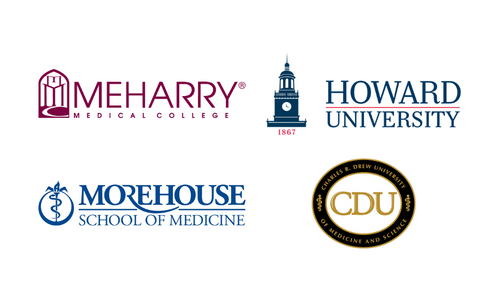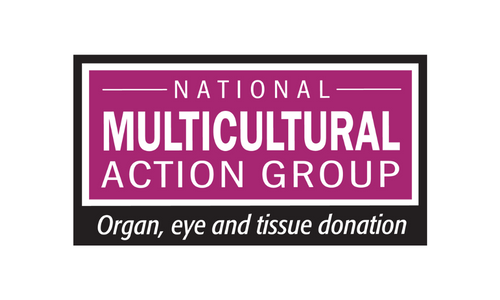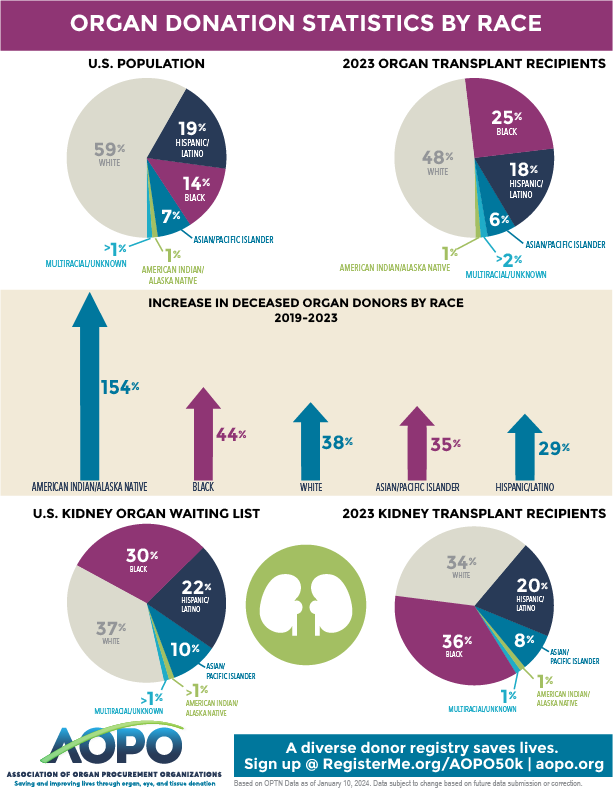
The second pillar of the 50K goal is to reduce health inequities to improve accessibility to organ transplants in diverse and underserved communities.

HBCU Programs
AOPO is collaborating with Historically Black College and University (HBCU) Medical Schools to develop pilot programs aimed at increasing the number of Black health professionals in the organ donation and transplantation field, as well as public outreach programs to provide education to communities of color. AOPO, member OPOs, and Meharry Medical College contributed donations to help start the pilot programs.

AOPO Receives ASAE Power of Associations Gold Award
AOPO was honored with the 2024 Power of Associations Gold Award from the American Society of Association Executives (ASAE) for the HBCU-OPO Task Force. The award, ASAE’s highest honor, recognizes associations that go beyond their core mission to make a meaningful impact on America and the world.

National Organ, Eye, and Tissue Multicultural Action Group (NMAG)
NMAG, a network of national stakeholders, is working to reach diverse and underserved communities to provide education on organ donation and encourage individuals to register as organ, eye, and tissue donors. NMAG hosts National Minority Donor Awareness Month every August to reach multiethnic communities.


